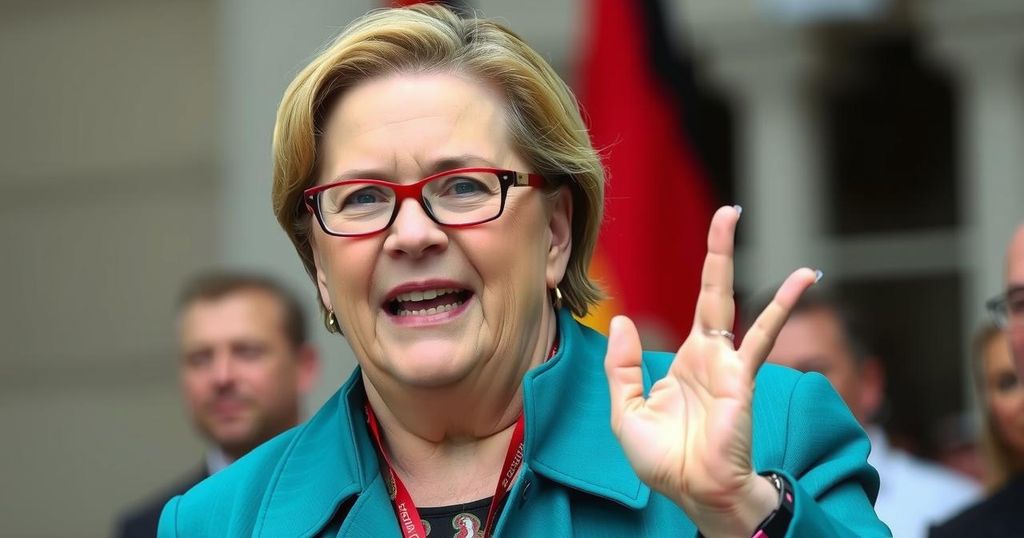Elon Musk’s Controversial Endorsement of Germany’s AfD Party

Elon Musk has voiced his support for Germany’s far-right AfD party, calling it the “last spark of hope” for the nation. His op-ed sparked protests among media staff and backlash from political figures, raising concerns about foreign influence in the German electoral process and challenging existing media norms regarding political endorsements.
In a recent op-ed for the Welt am Sonntag, Elon Musk has expressed his endorsement of Germany’s far-right political party, Alternative for Germany (AfD). He asserted that the AfD is the “last spark of hope for the country,” amidst claims of impending economic and cultural collapse. Musk criticized the label of extremism attached to the party, arguing that such a characterization is misleading. He praised the AfD’s stance on deregulation and tax policies, suggesting that they could rejuvenate the German economy. This endorsement has provoked significant backlash from other political figures and the media, with accusations of Musk seeking to interfere in German politics. The article was met with protests from the Welt editorial staff, sparking a broader conversation regarding the influence of international figures on domestic election processes.
The political landscape in Germany has been shifting, with the AfD gaining traction in the polls, currently standing at approximately 20%. The party’s right-wing populist agenda has raised concerns about its implications for democracy and societal stability. In Germany, media organizations typically maintain a stance of objectivity and impartiality, particularly when it comes to political endorsements during election seasons. However, Musk’s intervention has challenged these norms, raising questions about press freedom and external influence in political affairs. Moreover, the history of media endorsements in Germany is relatively sparse, making this situation particularly notable.
Elon Musk’s public support for the AfD has sparked outrage and significant debate regarding foreign influence in German elections. While Musk believes the party can provide a solution to Germany’s challenges, critics fear his endorsement legitimizes far-right populism. This situation highlights the balancing act of press freedom and the responsibilities of media outlets amidst external political endorsements. As the political climate continues to evolve, the implications of Musk’s statement remain to be observed, particularly in relation to the upcoming elections and the role of the media in shaping political discourse.
Original Source: www.dw.com







